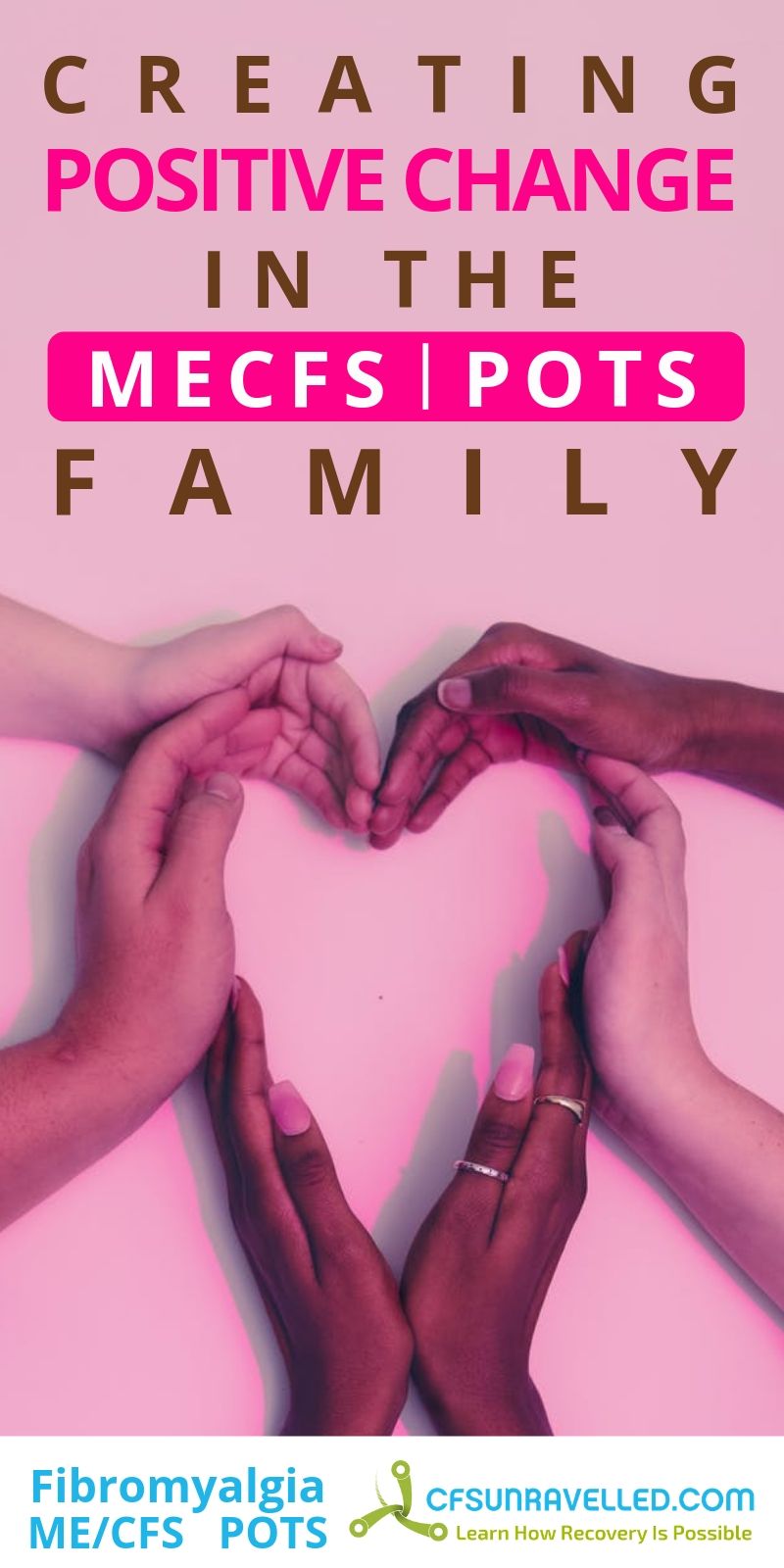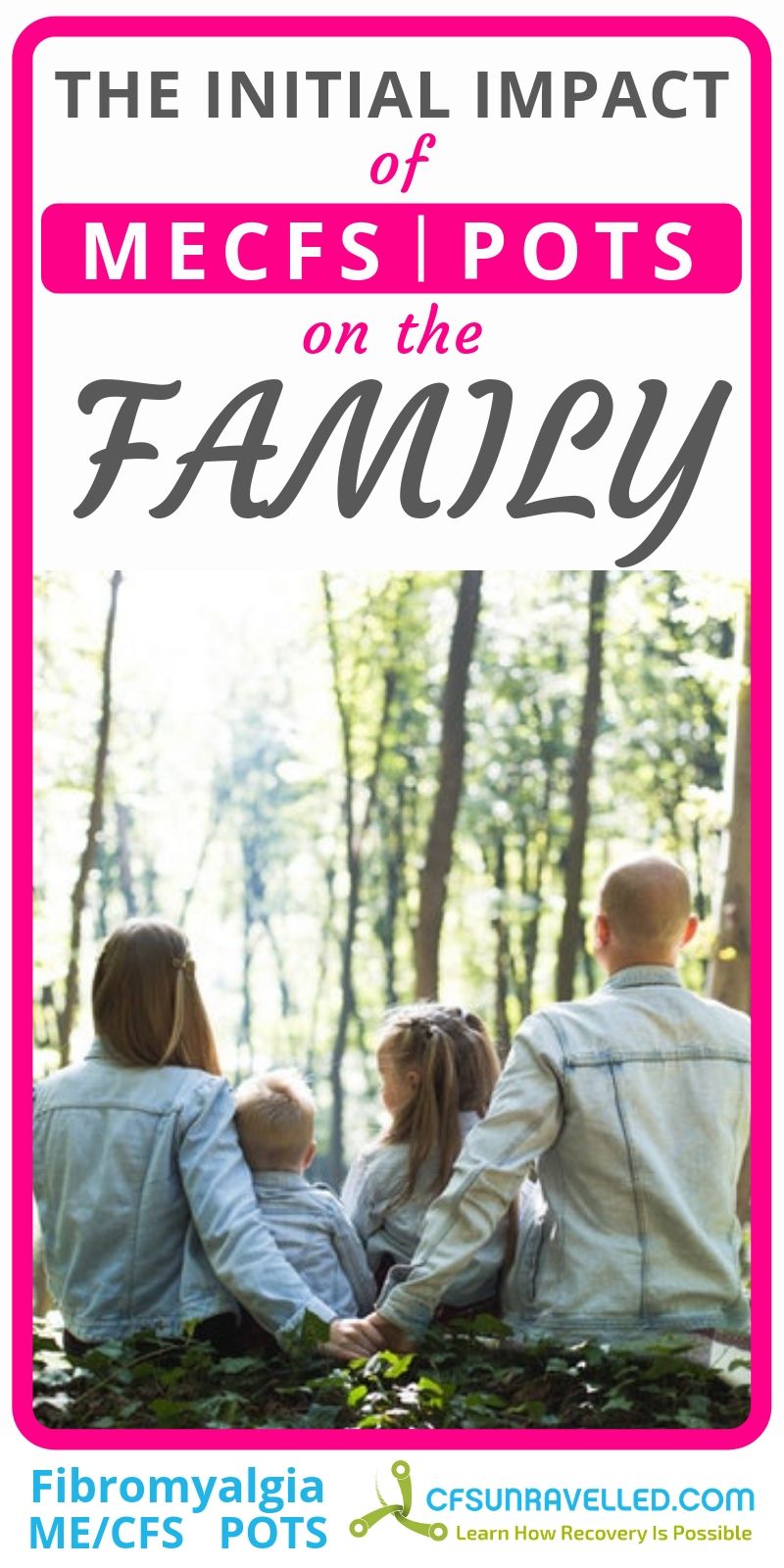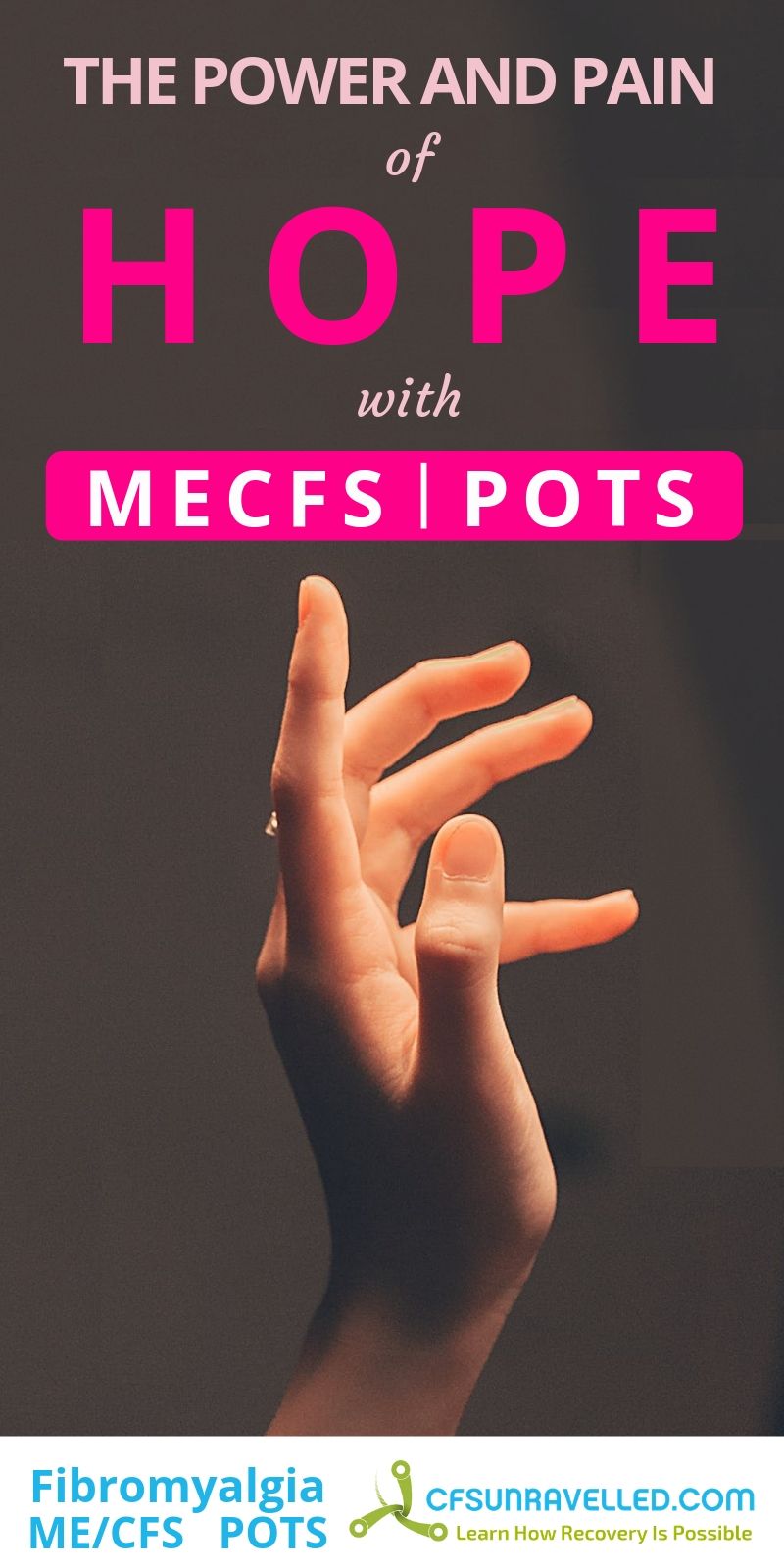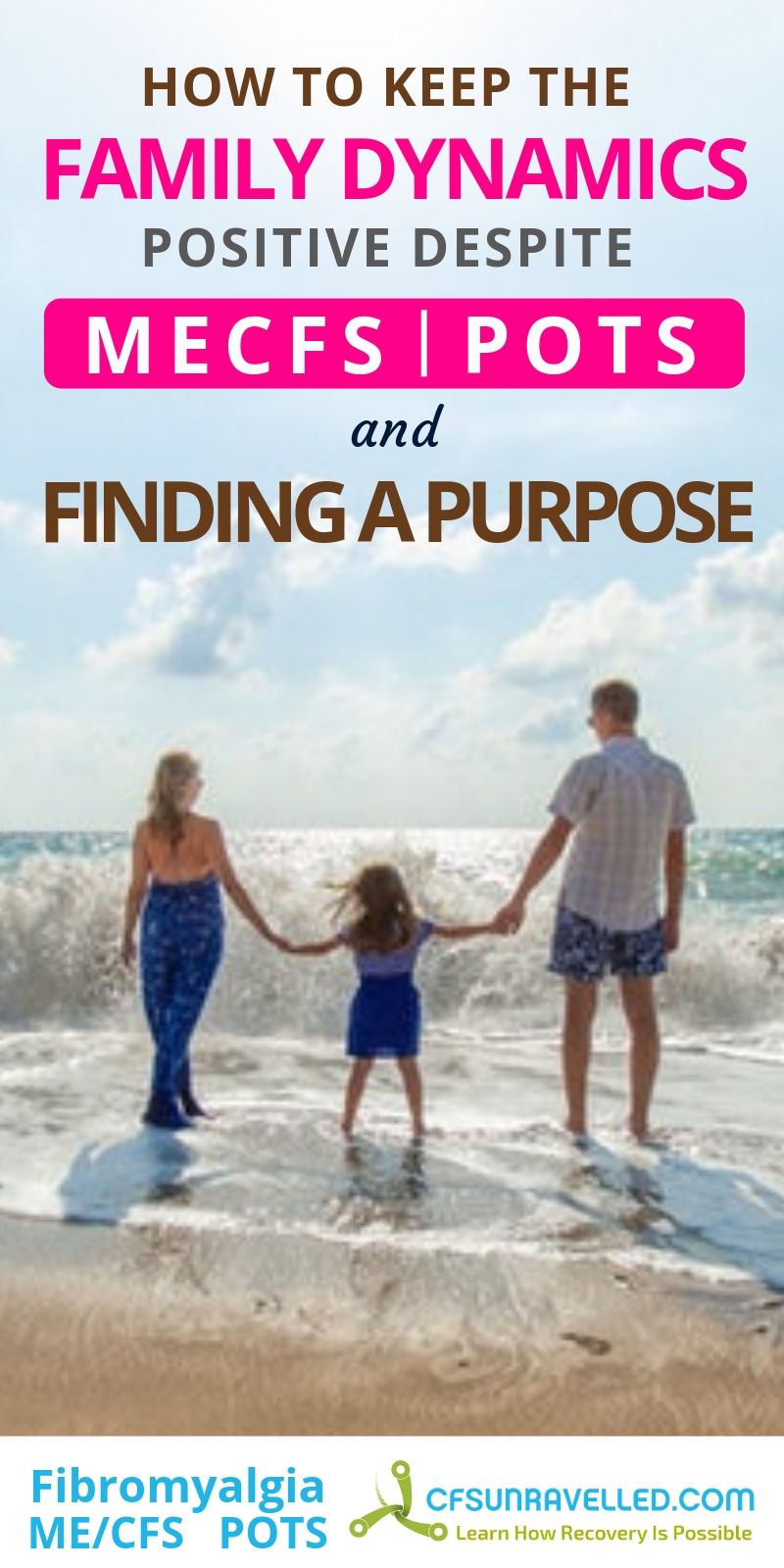By Jim Ostendarp ***
The Tests are Negative, She’s Well
My wife’s illness with Chronic Fatigue Syndrome (CFS/ME/SEID & POTS) started as only minor chest pain. But it continued to occur and a few other nuisance symptoms also developed. A month passed but Mollie was still not well and feeling worse. She went to her Doctor who immediately sent her to the ER and was admitted her to the hospital where I worked. The staff at the hospital was kind but multiple tests failed to show any reason for her illness. We were told “The tests are negative, she’s well.” She was sent home despite the fact that she couldn’t walk more than a few steps and her symptoms were getting worse. The only upside was that our 5 year old son Isaac would be able to see his Mom again. We had wanted to protect him from the upset of seeing her in a hospital. As it turns out, he was more upset at not seeing her at all.
The Initial Impact Of ME/CFS/POTS On The Family

When she returned home Isaac had a “Get Well Soon” card waiting for her. It was in the shape of a heart, 18 inches tall and had a picture of two flowers, one smaller than the other. What was sad about his drawing was that the leaves of the small flower, looking like hands, were turned away from the taller flower, the leaves of the taller flower were turned away from the small flower. Both rooted, unable to touch the other. Having worked as a child psychotherapist I couldn’t help but read into his picture a fear of losing contact with his Mom.
Early in this odyssey with ME/CFS/POTS, I told Mollie “Your only jobs now are to get well and be there for Isaac. I’ll do the rest.” My role had to change. We had been comfortable with a traditional division of labor but now I took on cleaning and shopping in addition to the yard work. Since Mollie could no longer work, the extra income from my private practice was no longer extra. Most important, I wanted Isaac to have as much opportunity to explore the world as when Mollie spent each day with him. This turned out to be a blessing for me as Isaac and I started spending a lot of time together. But there was also a lot to do. I had to step up my ability to juggle and prioritize my tasks, to keep track of all the things that had to get done and then make sure they got done. I was so frequently in “doing” mode I came to define myself by my ability to do all the things I needed to do.
The reason getting things done became such a priority for me was that I didn’t want our family’s life style to deteriorate with Mollie’s health or be defined by her illness. I was concerned about how it would affect us to watch our home be less clean, less cared for, to worry about paying bills if we didn’t have the money, what it would be like for Isaac to stay home, no longer going to movies, vacations or the Science Museum. I was committed to insuring that Mollie’s illness be a part of our lives rather than our lives being defined by her ME/CFS/POTS.
Trying to keep the Family Dynamics positive despite ME/CFS/POTS & Finding A Purpose
Before Mollie became ill, she had always been very active, always on the go. Suddenly she had no more than about 3 hours of energy per day—if she took it slow. The rest of the time she was forced to lie down with her feet up on the couch playing video games and watching T.V . With only 3 hours of energy available each day she had to use her time wisely. She prioritized being present and attuned to our son. Mollie had lost her health; we didn’t want Isaac to feel he had lost his Mom. We were aware that he would somehow take on her illness as a part of his life and wanted to make sure that Mollie’s decreased availability wouldn’t unintentionally bring into question his Mom’s love for him. We wanted him to feel she could still take care of him emotionally. There wasn’t much she could do with Isaac but the way she would be with him became very important. Instead of going out to a playground with him they would cuddle together on the couch.

Mollie chose to use her remaining time to continue to cook supper for us. This proved to be an important choice for our family as it insured that we could experience being the same family as before, rather than the family with a sick Mom. It allowed us to look forward to that time to be together every day. It was also one thing Mollie could continue to do to feel she was contributing to the family.
Everything else Mollie used to do to participate in the world was gone. She could no longer work, she couldn’t go to family events, or out to dinner or on vacations with her family. She could rarely even leave the couch during the day. One thing she could do with the little energy she had was to prepare a meal we could enjoy together. When her brain was too foggy or in pain to read she would watch a cooking show. She would slowly take all afternoon, in 5 to 10 minute increments, to cook what in the past she would have done in an hour after coming home from work.
Mollie had always been interested in cooking. Now it became a passion. It was something she could do where she could grow and learn and be creative. It was a way to be happy each day and engaged in life. Having this type of activity was an important factor in experiencing her life as more than just being sick.
Emotions Run High For ME/CFS/POTS Sufferer AND The Partner As Roles Change
As my role became defined by doing, to compensate for what Mollie could not do, Mollie’s life had become defined by how to be sick. She struggled with how to be sick without being depressed. During the first year of her illness we stayed hopeful and were kept busy looking into new possibilities for diagnosis and treatments. But as each new prospect proved to be unhelpful, Mollie did start becoming depressed.
A significant factor contributing to her depression was that I had gradually become unable to be with her when she was sad and feeling hopeless. As busy as I was, I would come home in the evening tired and wanting nothing more than to do nothing more. Mollie had been alone and in pain all day, sometimes feeling hopeless and struggling with her energy as she tried to manage a young boy. She needed to talk about her day. She needed me to be with her emotionally and be caring (the way I was able to be at work). I would tell myself “One more task to do.” and sit down to listen; but responded with rational advice about what she should do. That was not what she needed.

I was trapped in doing mode and couldn’t unblend from that part of me to simply be with her. She was in being mode and needed me to be with her. I felt powerless and angry that there was nothing I could do for her. I felt resentful that when I came home she was so caught up in her suffering that she was no longer able to be there for me. Meanwhile Mollie was hurt and angry that I couldn’t truly be there for her. After all, she was the one suffering. Both of us were frustrated that we couldn’t connect and in the heat of the moment neither of us were able to feel compassion for the situation the other was in. Instead we became defensive. (I took out the title here.) Isaac could feel the tension and when he heard the arguments would angrily tell us both to “Stop it.” He needed the security of knowing we cared for each other. Our reaction to the illness had shaped us into polarized roles in the family, without the ability to comfort one another.
Creating Positive Change in the ME/CFS/POTS Family
Being a Psychotherapist she saw the signs of depression early and found an IFS* psychotherapist who could focus on how different parts of her were relating to the illness. They discovered that there was a part of her in denial about the fact that she was sick. Whenever she felt better this part would hijack her and she would become very active, enjoying her energy that day, then crash for a few weeks after over taxing her body. One day, about a week after this awareness, Mollie suddenly started crying. She realized that this part of her had just accepted the fact that she was ill and was more fully grieving the loss of her health. After that day she was better able to assess her energy and appropriately take care of herself. Taking good care of your self is the key to managing depression and so that started to improve as well.
After her first year being sick Mollie started taking on a different attitude toward her illness. Instead of asking herself, “Why me?!” she recognized, “Why not me? Who am I that bad things shouldn’t happen to me when they happen to people all the time?” By the second year, instead of experiencing herself as having an unfortunate life because she was sick, she felt she had a good life with Isaac and me and also happened to be sick. This attitude made a big difference to our family. But it was not the only way she adapted to her new reality. She also became wary of hope that she would ever heal from ME/CFS/POTS.
The Power And Pain Of Hope With ME/CFS/POTS
At the outset of each new doctor, test, medication or treatment she was hopeful. At the failure of each to produce any results she was disappointed. The disappointment hurt and she was tired of hurting. The solution was simple; no hope, no hurt. She continued to pursue treatments but had also become resigned to her illness. I was unable to be with her in her hopelessness. Hopelessness frightened me. I wasn’t ready to be resigned so I took on the job in the family of holding onto hope. Isaac still needed to hope his Mom would get getter and I still needed that hope as well.
As we slowly became used to this new reality our lives with ME/CFS/POTS took on a rhythm that was manageable. By accepting her illness, even if that meant giving up hope, Mollie was able to find a smarter balance between using and conserving her energy. This helped her find another hour of energy a day and she took back doing the laundry. We decided that hiring a house cleaner twice a month was worth it to avoid regular arguments about the quality of my housecleaning. I appreciated that she cared for me by trying to lighten my load. With less for me to do I started to recover a balance within myself and was able to be more compassionate when Mollie needed to talk about being ill. Of course my former inability to listen to her talk about pain or hopelessness taught her to rarely come to me with those feelings.
The Transformation of the negative family dynamic with ME/CFS/POTS
I was raised in a family that was stoic and practical about illness. Mollie’s family was more empathetic and demonstrative when someone was sick. This difference in how we handled illness had always been a cause for upset in our relationship. If I got sick I would want distance and isolation to take care of myself. If Mollie got sick she would expect attention and comforting; and of course feel uncared for when it didn’t happen. This polarized approach to managing illness shifted over the course of her illness. Out of necessity Mollie learned to look within herself for compassion when the illness got her down. I became better able to set aside my task oriented role and feel compassionate towards her.
At the outset of her illness our roles became polarized. She had little she could do other than to focus on the emotions and sensations of being sick. I felt I had to exile my feelings to put all my energy to doing the tasks needed to keep our family going. Over the course of her illness we both learned how to feel more compassionate, both for ourselves and for each other. When we could relate with each other from compassion we felt more connected and aware of what the other is going through. Isaac felt this and we could see his attention focus more on his own interests rather than on family dynamics.

By learning to accept her illness with self-compassion, being sick no longer defined her. Sick was merely a part of who she was. By growing beyond the roles we took on to manage the illness, including the roles we learned from childhood, are roles no longer defined us. They were just a part of how we needed to respond to the illness. This allowed us to respond more appropriately to the challenge of her illness rather than react in ways that left both of us upset. Because I more frequently saw her through the eyes of compassion I developed a new, deeper appreciation for my wife. Over the five years that I have witnessed her struggle with this difficult reality she has shown such amazing grace, strength and wisdom. I can’t imagine being able to handle illness as well as she has.
The Impact of Therapy On Recovery From ME/CFS/POTS
Mollie had learned to accept her illness and respond to it with self-compassion and I finally learned to look past the roles and defenses I had put up to cope with her illness. We were able to be well as a family because we had compassion for one another. We even had more compassion for the parts of us that had roles that helped us to cope with her illness.
We were lucky, because 4½ years into her illness, Mollie found ANS REWIRE**. With the security of feeling cared for Mollie was willing to risk hope and try this new treatment. I am grateful she did, because within five months of starting the program she was truly well again.
Therapeutic insights were invaluable in helping us adapt to changing family dynamics throughout those years with ME/CFS/POTS. It certainly helped Mollie, Isaac and me to cope and get through those tough times. Looking back I can see that it did much more, it played an integral part in preparing Mollie to launch her recovery journey and regain her health.
*IFS stands form Internal Family Systems; a therapeutic model of psychotherapy developed by Dr. Richard Schwarz. It is an evidenced based treatment for all mental health issues.
**ANS REWIRE is an effective approach for recovery from ME/CFS, POTS and Fibromyalgia developed by Dan Neuffer.
***Jim Ostendarp is a Licensed Mental Health Counselor and Licensed Marriage and Family Therapist with 26 years’ experience. He lives in So. Deerfield, MA with his family, Mollie and Isaac.
Here are some images for sharing on social media:






